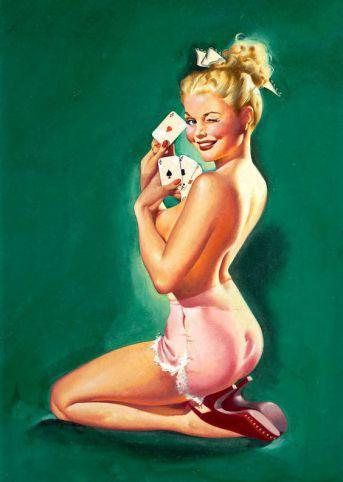 Savannah Sly asked me his question on Twitter, and I replied that I think it’s most likely from cards. In card games like rummy, a “trick” is one hand, and to “win the trick” or “turn the trick” is to win that single hand, though not necessarily the whole game. So I strongly suspect “to turn a trick” is closely related to the general “that did the trick”, meaning “that thing just accomplished what I was trying to do in the moment”. Turning a “trick” in sex work, getting one gig, is like winning one hand in a very long game of cards.
Savannah Sly asked me his question on Twitter, and I replied that I think it’s most likely from cards. In card games like rummy, a “trick” is one hand, and to “win the trick” or “turn the trick” is to win that single hand, though not necessarily the whole game. So I strongly suspect “to turn a trick” is closely related to the general “that did the trick”, meaning “that thing just accomplished what I was trying to do in the moment”. Turning a “trick” in sex work, getting one gig, is like winning one hand in a very long game of cards.
After I’d given this answer, a reader chimed in with this link wherein a non-whore attempts to trace the origin to the French triquer, due to a slang usage meaning “to fuck in a bestial fashion”. My sense is that this is a false cognate; it’s not unusual for languages to have words which resemble those in other languages, but have nothing to do with them either etymologically or semantically. For example, the German word gift means “poison”, but the French poisson means “fish”. The thread following the original attempt at derivation is quite interesting in that it’s made up of a bunch of men trying to trace the meaning of a word used by women to the client side of the equation, when obviously that’s silly. I’m often fascinated by amateurs’ attempts to explain the demimonde when they know nothing about it, as exemplified by the one dude who attempts to derive it from 19th century criminal slang by claiming that street whores working with robbers was once “common”; of course it was nothing of the kind, as reflected in the fact that there are a number of historical slang terms for such women to differentiate them from honest whores. Obviously, even professional lexicographers cannot be certain of the derivation of a word, but given the origin of the term in the US of the early 20th century, I think my hypothesis a much stronger one than either the “French” or “criminal” hypotheses.
(Have a question of your own? Please consult this page to see if I’ve answered it in a previous column, and if not just click here to ask me via email.)
